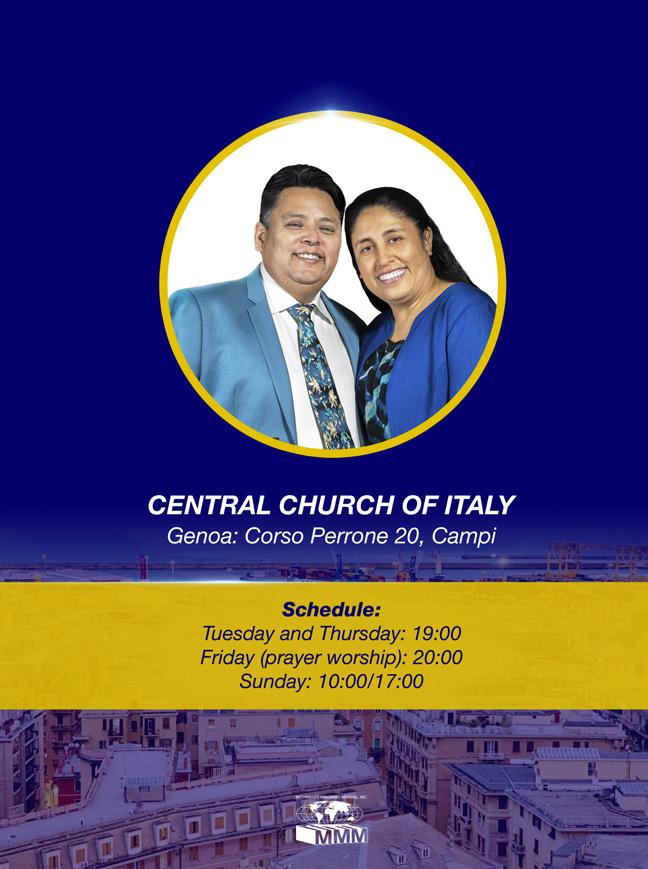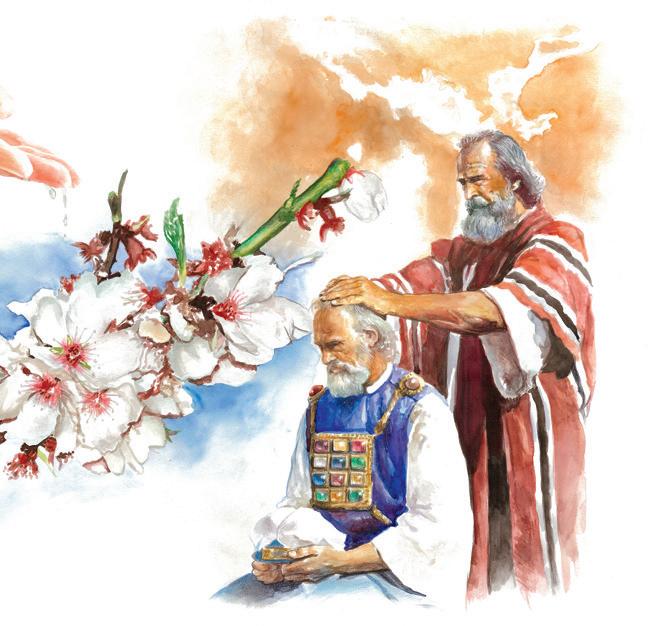
4 minute read
Apologetics PREDESTINATION (III
from 788_English
PREDESTINATION (III)
Rev. Luis M. Ortiz
Advertisement
The Holy Scriptures do not state that God predestines some for salvation and others for damnation. We all make our own decisions, and we reap the fruits of our choices.
Not one man in the Bible – neither Job nor David, nor Isaiah, nor Jeremiah, nor John the Baptist, nor Paul – was predestined by God to be saved or to be condemned. Still, God knows in advance, ever since conception, which of us will fulfill His eternal purpose of redemption through His Son Jesus Christ.
God’s prior knowledge is called in the Bible “the foreknowledge of God.” The apostle Peter writes: “Elect according to the foreknowledge of God the Father…” (1 Peter 1:2). That is, God chooses to call those who, to His foreknowledge, will answer positively to such call.
Peter himself, on the day of Pentecost, points out to the Jews that God knew in advance what their actions would be: “Ye men of Israel, hear these words; Jesus of Nazareth, a man approved of God…, being delivered by the determinate counsel and foreknowledge of God, ye have taken, and by wicked hands have crucified” (Acts 2:22-23).
Let us go back to Romans 8:29 to see the divine sequence in this matter: “For whom he did foreknow…” There is His prescience, His foreknowledge. It is by this anticipated knowledge that He knows who will respond positively to His call, and who will reject it. God does not choose anyone for salvation or damnation; the decision is made by the individual himself.
1 Timothy 2: 4 clearly says that God wants to save all men, but not all men want to be saved. 2 Peter 3:9 states that “the Lord ... is long-suffering to us-ward, not willing that any should perish, but that all should come to repentance,” but not everyone wants to repent.
In many alike verses of the Old Testament, God invites everyone to salvation; e.g. “Look unto me, and ye be saved, all the ends of the earth: for I am God, and there is none else” (Isaiah 45:22); “Come now, and let us reason together, saith the Lord: though your sins be as scarlet, they shall be as white as snow; though they be red like crimson, they shall be as wool” (Isaiah 1:18).
And in the four Gospels of the New Testament, the Lord continues to hand out invitations to everyone in general. The first is in Matthew 11:28, in which He says with much love: “Come unto me, all ye that labour and are heavy laden, and I will give you rest.” And the Lord’s last invitation is found in the last book of the New Testament: “And let him that is athirst come. And whosoever will, let him take the water of life freely” (Revelation 22:17).
But, as we have already observed, to those who reject His love, the Lord, in great firmness and justice, says: “But if ye refuse and rebel, ye shall be devoured with the sword… the fearful, and unbelieving, and the abominable, and murderers, and whoremongers, and
sorcerers, and idolaters, and all liars, shall have their part in the lake which burneth with fire and brimstone: which is the second death” (Isaiah 1:20; Revelation 21:8).
So, it is very clear in the Holy Scriptures that God does not predestine some for salvation and others for damnation. We all make our own decisions, and we reap the fruits of our choices: those who believe and accept Jesus Christ are saved; those who do not believe and reject Jesus Christ are condemned. In both cases, forever.
The verses in chapter 8 of the epistle of the apostle Paul to the Romans were used by St. Augustine, Calvin, and others used to support the theory of predestination. “For whom he did foreknow” (v. 29). To know means to be aware of something, someone o some event through observation, inquiry or information.
God the Creator perfectly knows everything and everyone; nothing is hidden from God and nothing escaped His notice. For this reason, the Holy Spirit inspired the apostle Paul to write: “O the depth of the riches both of the wisdom and knowledge of God! how unsearchable are his judgments, and his ways past finding out! For who hath known the mind of the Lord? or who hath been his counsellor? Or who hath first given to him, and it shall be recompensed unto him again? For of him, and through him, and to him, are all things: to whom be glory for ever. Amen” (Romans 11: 33-36).








